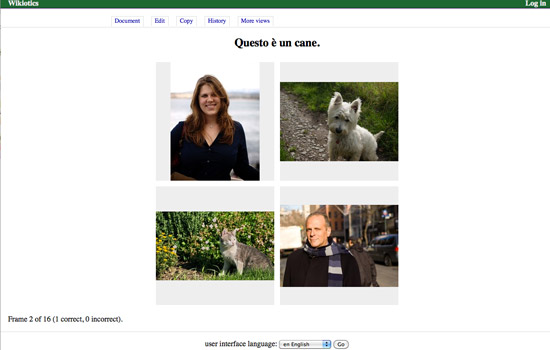RIT Initiative Strives to Create Free and Open Source Software
FOSS@RIT initiative aims to connect students with humanitarian-related projects
The Free and Open Source Software initiative at RIT is working with an organization called Wikiotics, which is a free online language learning tool.
The Free and Open Source Software initiative at Rochester Institute of Technology (FOSS@RIT) strives to incorporate humanitarian efforts into their work. Stephen Jacobs, the initiative’s director and an RIT interactive games and media professor, continuously searches for ways to show students how their skills can benefit others.
“Throughout my career I’ve worked to provide opportunities for my students to do service learning,” Jacobs says. “The software development skills that they develop in the classroom can benefit a larger community in some way.”
The initiative’s newest effort is a collaboration between Jacobs and two of his students, Taylor Rose and Nathaniel Case, who have teamed with the wikiotics website, an emerging free and open-source community collaboration that teaches foreign languages. Not only does their work provide a free way for people across the globe to learn new languages, but it bolsters Rose and Case’s resumes.
“Any work experience in your main field is invaluable when you’re in school,” says Case, a fifth-year computer science major. “Not to mention the freedom of being able to point at an open source repository and say, ‘that’s my code.’ It helps a lot showing people what you can do when there are people using it.”
Rose feels similarly. He believes Wikiotics can ultimately be used as a free teaching resource for children, especially those in developing countries. But there’s another reason why he’s attracted to free and open source projects.
“There’s a little bit of hippie in me that likes to fight the man,” says Rose, a fourth-year computer science major. “I like the idea of providing a free and open version of software that normally can only be bought.” Jacobs sees enormous educational benefits in having students working on free and open source projects.
“This kind of work is gaining traction in academia—not just in industry,” says Jacobs, who received a Teaching Open Source grant to present his curriculum and his student’s work at universities and conferences around the country and in Hong Kong.










